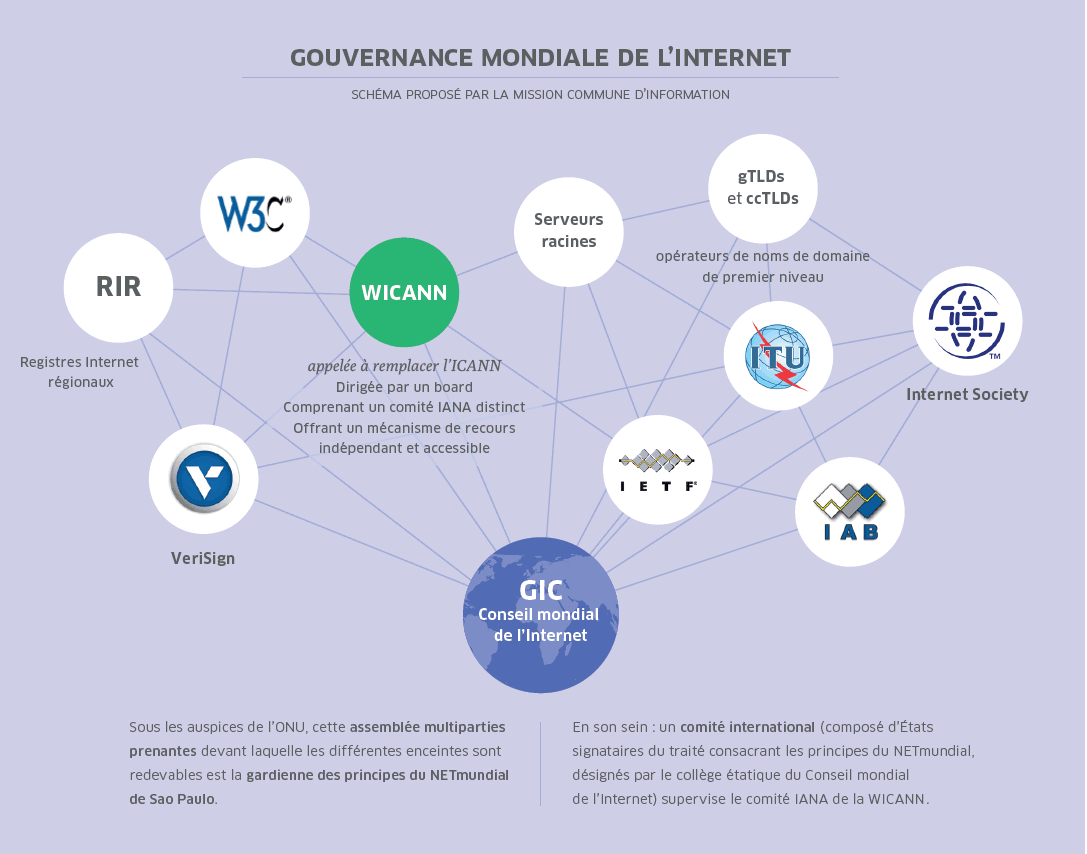One such organization with "other ideas" is the Just Net Coalition. Below are excerpts from the latest Just Net Coalition proposal on the IANA transition and ICANN accountability.
Comments on the IANA transition and ICANN accountability: "...As stated in our Delhi Declaration1: 'Existing governance arrangements for the global Internet are inadequate. They suffer from a lack of democracy; an absence of legitimacy, accountability and transparency; excessive corporate influence and regulatory capture; and too few opportunities for effective participation by people, especially from developing countries. The situation can be remedied only through fundamental changes to the current governance arrangements.' This applies also to the management of Internet domain names and addresses, that is, to ICANN and IANA, their accountability, their structure and organization and their relations....
21. In our view one way forward might be to recognize that the legacy gTLDs (in particular “.mil”, “.edu”, “.com”, and “.org”) are in reality US constructs and thus they should be under the authority of the US [US government], who would be free to delegate that authority as it sees fit...
22. Further, countries should be allowed to ask for additional ccTLDs and should be granted additional ccTLDs upon request. In addition, if a gTLD registry and a country wants to give a gTLD a status equivalent to that of a ccTLD (similar to the above proposal for “.mil”, “.edu”, “.com”, and “.org”), they should have the right to do so.
23. ICANN should become a membership organization, with the membership having ultimate decision-making authority. The membership would elect the Board and could override any decision of the Board. The membership would consist of all registrants of domain names (that is, holders of domain names) controlled by ICANN, that is, gTLDs (see 21 above)....
31. It our view, it should be recognized that ICANN is the economic regulator of the gTLDs. There is no obvious reason to combine this function with the IANA function. Thus we propose consideration of full structural separation...
32. Create a new entity that would perform the root zone management function. It would be structurally separate from ICANN. It would be a Swiss non-profit association, and would request that the Swiss government grants it immunity of jurisdiction. The members of the association would be the domain name registries (both gTLD and ccTLD). The domain name registries would fund this new entity.
33. ICANN would be the interface between the gTLD registries and the new root zone management entity. ccTLD registries would communicate directly with the new root zone management entity.
34. The IETF would decide who should perform the protocol parameters part of the existing IANA function. That could be the new entity of 31 above or any other organization chosen by IETF. The protocol parameter function would be funded by ISOC.
35. The NRO would decide who should perform the IP address part of the existing IANA function. That could be the new entity of 32 above or any other organization chosen by NRO. The IP address function would be funded by the RIRs...."
(read more at link above or download pdf: http://justnetcoalition.org/sites/default/files/IANA_paper_2014-07_2.pdf )
Members of the Just Net Coalition: http://justnetcoalition.org/jnc-members
Just Net Coalition Steering Committee: http://justnetcoalition.org/jnc-members#steeringcommittee
more news links below (on mobile go to web version link below)
Follow @expvccom




